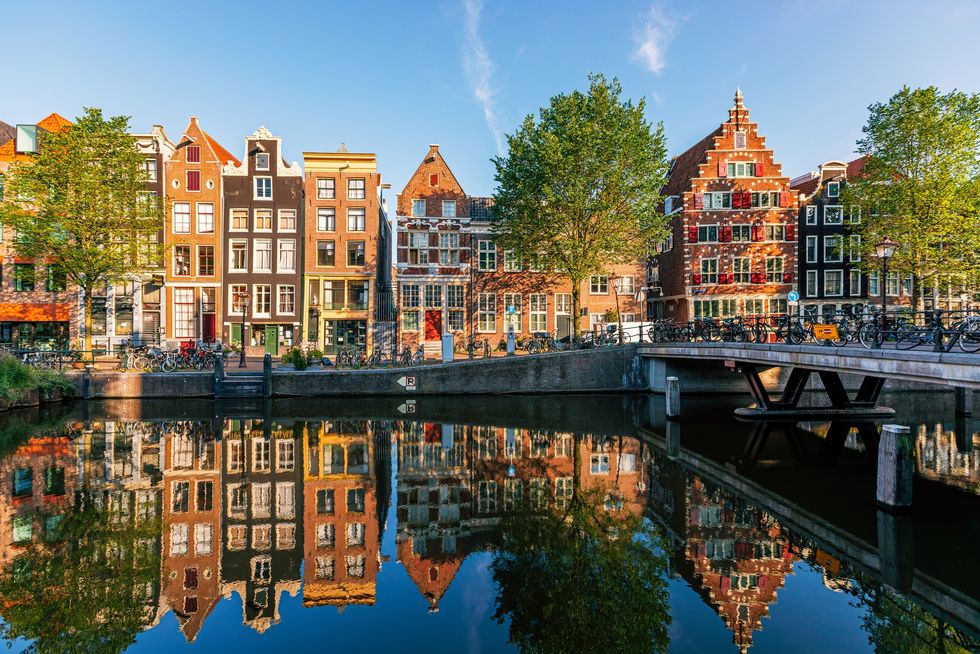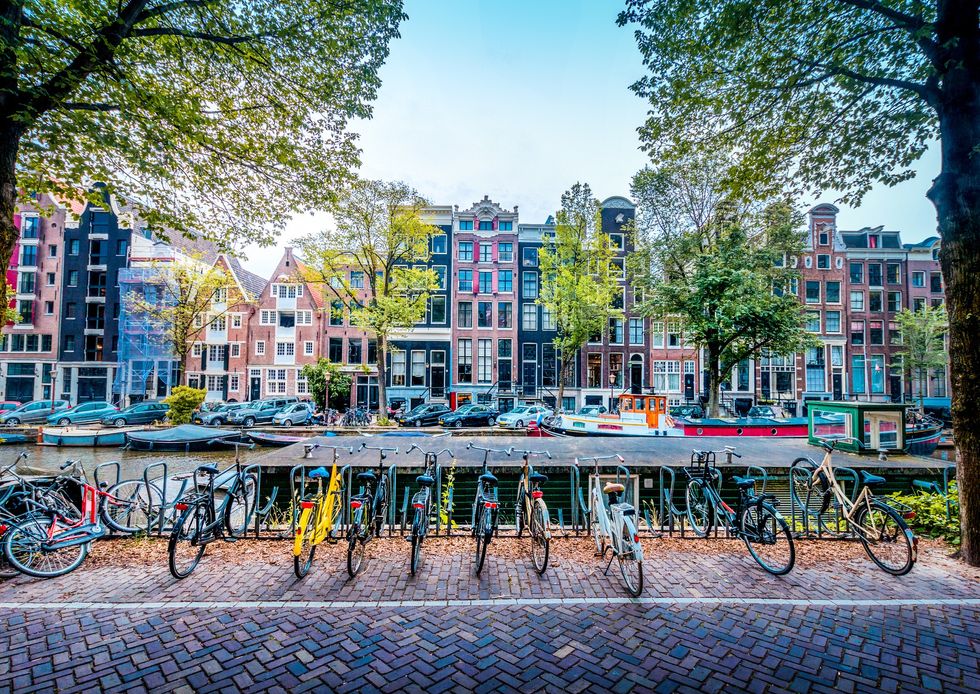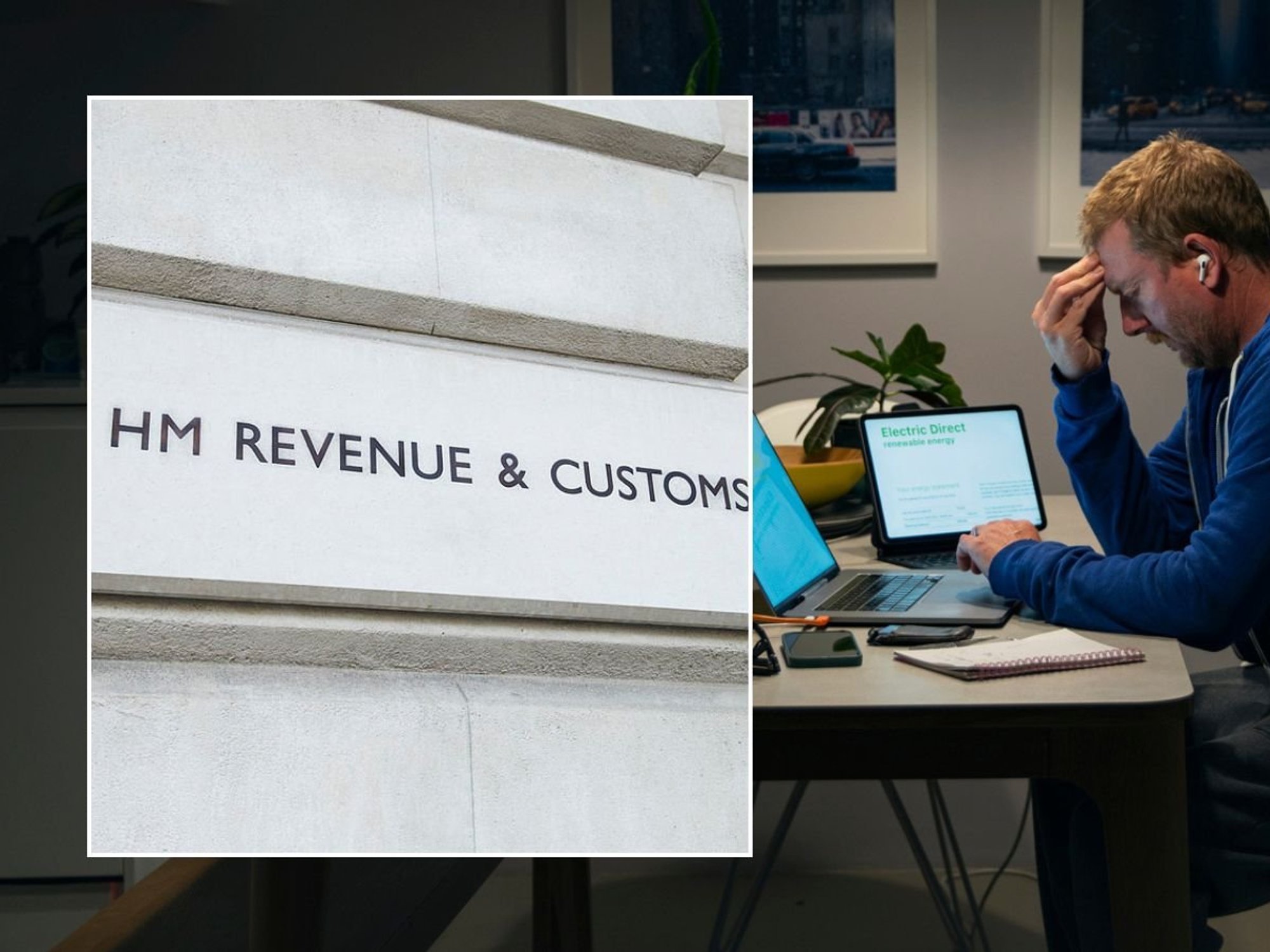GBN expat secrets - Netherlands: 'Gorgeous place to live - but locals hate British tourists'

An expat in the Netherlands told Britons all about life in Amsterdam
|Adrian Tauss

GB News is talking to expats across Europe and the world who have exclusively revealed the best places to live, tips and tricks for moving abroad, and the potential pitfalls to avoid. This week, an expat in Amsterdam, the Netherlands, revealed why it's the perfect place to live
Don't Miss
Most Read
Latest
Comedian Sid Singh moved to Amsterdam, the Netherlands, aged 31 when he was scouted to perform at a comedy theatre.
He spent a year there in 2019 and the latter half of 2020 before moving back to the UK, and is currently considering going back. He spoke to GB News about what he loved about the capital city and why it's totally different from what tourists might expect.
Amsterdam is synonymous with cycling and the first thing Sid noticed when he arrived in Amsterdam was that everybody had a bike.
He said: "It's funny because at first you think it's so chaotic as everyone is cycling. But the longer you live there the more you realise it's very organised - there's a rhythm to the city."
As for what it's like to live in, the comedian said: "It's a lot of fun." Because "there are so many expats now", it's easy to "build communities" in the city.
He met plenty of "like-minded" people who had the same interests as him, and found Amsterdam to be a melting pot of so many different cultures, giving it a richness.
"I thought it was relatively easier to find a community of people in Amsterdam than anywhere else," Sid added.
Asked what the locals were like, Sid said: "If you stay in the big cities like Amsterdam, Rotterdam, The Hague and Utrecht, these cities are so diverse that all of the locals tend to have a cosmopolitan attitude."
So what do the locals get up to in the Netherlands capital? While coffee shops are permitted to sell cannabis as part of the Dutch policy of toleration, according to Sid, its use isn't as widespread as you might think.

Amsterdam is home to 165 canals
|GETTY IMAGES
He said: "If you actually live in the Netherlands, you might buy it if that's your thing, but you don't really come across it that much.
"The centre of Amsterdam will have weed and the Red Light District, but if you're in The Rozengracht or other neighbourhoods, you're so far removed from it - you're not even thinking about it."
Sid briefly lived in the Red Light District during Covid times. He told GB News: "I lived there during the pandemic with my friends, but it wasn't like what you see in movies. It was just a gorgeous, empty neighbourhood in the middle of the city.
"But then the problem was that when everything opened back up, it went from the greatest secret neighbourhood in the city to, 'Oh my God, this sucks'."
The expat in Amsterdam admitted that one negative aspect of living in the city was being around loud and often disrespectful British tourists. He even recalled his attractive female friends being catcalled in the street by them.
He revealed that Amsterdam locals actually "hated" British tourists - "not American tourists, not anyone from the rest of Europe, they really hate British tourists".
But he made an important distinction between British holidaymakers on stag weekends and Britons who made the decision to move to Amsterdam.
Sid said: "The British people who moved to Amsterdam were great. I think they had a great time and fit in quite quickly. It was just the British stag do's that were a drunken mess."
So what can Britons expect from life in Amsterdam? The majority of people in the big cities can speak English, which will be hugely reassuring for those considering the move.
Sid continued: "It's a super walkable city and it's gorgeous too. The canals are great - taking the ferry to Amsterdam-Noord is always a fun time."
He assured Britons that there is plenty to do, and urged them to visit the many incredible museums on offer: "There are so many that are truly amazing." Sid particularly recommends the Van Gogh Museum and the Visual Arts Museum.
"The Visual Arts Museum is perfect for those who want to sit and watch the world go by. It has a terrace where you can sit and drink and watch the boats - it's amazing."
Nightlife is great in the capital too. The jazz scene is popular, and there's an ever-growing comedy scene.
But while the city is beautiful, the culture is rich and the nightlife is popping, one thing about life in Amsterdam leaves much to be desired - the food.
Sid said: "The number one rule in Amsterdam is that it will take you a while to get used to the Dutch food, because it's bad."
He explained that in Amsterdam, the good food comes from other cultures.
But apart from getting used to the food, Britons in Amsterdam will not find that the move is a huge adjustment.
It's around an hour's flight from London, so regular weekends visiting loved ones back home are totally possible.
LATEST DEVELOPMENTS

Amsterdam is a bicycle-friendly city and cycling is a big part of the culture
|GETTY IMAGES
The Netherlands is just one hour ahead of the UK, which means that calling home will never pose a time zone issue.
However, Sid has also lived in Barcelona, which he admitted is "much cheaper". He added: "The weather in Barcelona is significantly better. It doesn't rain all the time in Amsterdam, but when it does rain, it rains a lot."
For Britons considering moving overseas, the expat advised: "If climate and budgeting well are really important to you, you can't go wrong with Barcelona.
"For a more mature, low-key experience, I'd recommend Amsterdam. Despite its reputation, it's quite a lovely place to retire. The pace is slower and it feels significantly more connected than the UK."
For British retirees, Sid recommends De Pijp: "It's really cute and central but you're far enough from tourists that you can avoid them."
Another option is The Hague, which is quiet, calm and clean, not to mention close to the beach.
Sid concluded: "I think if you're from the UK you probably have a good bet of enjoying the Netherlands."
GB News recently spoke to a British woman about her experience moving to sunny Sydney. The expat in Australia said that while she "loved everything about it", she doesn't think you should retire there.
Moving to Amsterdam, The Netherlands
What you need to know
Britons thinking of relocating to Amsterdam will need to consult Government guidance on buying a property abroad.
According to the experts at Expatica, owning a home in the Netherlands makes good financial sense, despite property costs being high. Tax benefits for homeowners mean that mortgage costs are often lower than rent.
Britons looking to buy can check out a wide range of sources including Expatica, Funda (the biggest Dutch property site and is available in English), and Pararius (available in several languages). Huislijn and Jaap are available in Dutch.
Britons who want to drive in Amsterdam should consult GOV.UK advice on driving in the EU and driving license rules if you live there.
You must exchange your UK, Gibraltar, Jersey, Guernsey or Isle of Man licence within 185 days of becoming a resident. This should be done at your local council (gemeente).
The roads and highways in the Netherlands are very clearly signposted, making the Dutch road network one of the safest in Europe.
Owning a car is not necessary in Amsterdam though, as the city is very accessible by foot or by bike.
While English is not the official language of The Netherlands, around 90 per cent of the population know how to speak it.
But for expats who want to learn Dutch, language-learning software Babbel recommends utilising online learning tools, reading a Dutch children's book, reading Dutch news and watching some Dutch YouTube channels.
Recommended places for retirees
- De Pijp
- The Hague
- Maastricht
Why Britons choose to live in Amsterdam
- Walkable and cyclable city
- Rich in culture and history
- Good public transport system
- Easy access to neighbouring countries in Europe
- Great nightlife
- Good quality of life
- English is very widely spoken
- Positive work-life balance - employees are even given a holiday allowance which is usually 8 per cent of their wage
- Close to the UK
- Expensive
- Local cuisine may take some getting used to
- Loud and often disrespectful British tourists on stag weekends
- Over-tourism
- Housing shortage
- High taxes










